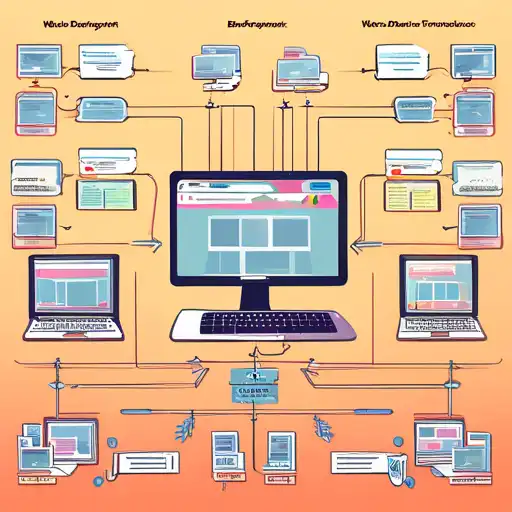Understanding Web Development Frameworks
In the ever-evolving world of web development, choosing the right framework is crucial for building efficient, scalable, and maintainable websites and applications. With a plethora of options available, developers often find themselves at a crossroads, trying to determine which framework best suits their project needs.
What Are Web Development Frameworks?
Web development frameworks are software libraries designed to support the development of web applications by providing a standard way to build and deploy them. They offer a foundation upon which developers can build, saving time and effort by avoiding the need to write code from scratch.
Key Factors to Consider When Choosing a Framework
Selecting the right framework involves considering several factors, including the project requirements, the learning curve, community support, and the framework's performance and scalability.
Project Requirements
Understanding the specific needs of your project is the first step in choosing a framework. Whether you're building a single-page application, a content management system, or an e-commerce platform, the framework you choose should align with your project's goals.
Learning Curve
Some frameworks are more beginner-friendly than others. If you're new to web development, you might want to start with a framework that has comprehensive documentation and a supportive community.
Community Support
A strong community can be a valuable resource for troubleshooting, learning, and staying updated on the latest trends and best practices in web development.
Performance and Scalability
The framework's ability to handle growth and increased traffic is critical for long-term success. Consider frameworks known for their performance and scalability.
Popular Web Development Frameworks
Here's a look at some of the most popular web development frameworks today:
- React.js - A JavaScript library for building user interfaces, particularly single-page applications.
- Angular - A platform and framework for building single-page client applications using HTML and TypeScript.
- Vue.js - A progressive framework for building user interfaces, designed to be incrementally adoptable.
- Django - A high-level Python web framework that encourages rapid development and clean, pragmatic design.
Conclusion
Choosing the right web development framework is a decision that can significantly impact the success of your project. By carefully considering your project's requirements, the learning curve, community support, and the framework's performance and scalability, you can make an informed choice that aligns with your goals. Remember, the best framework is the one that fits your project's needs and your team's expertise.
For more insights into web development, check out our articles on Web Development Basics and Frontend vs Backend Development.
